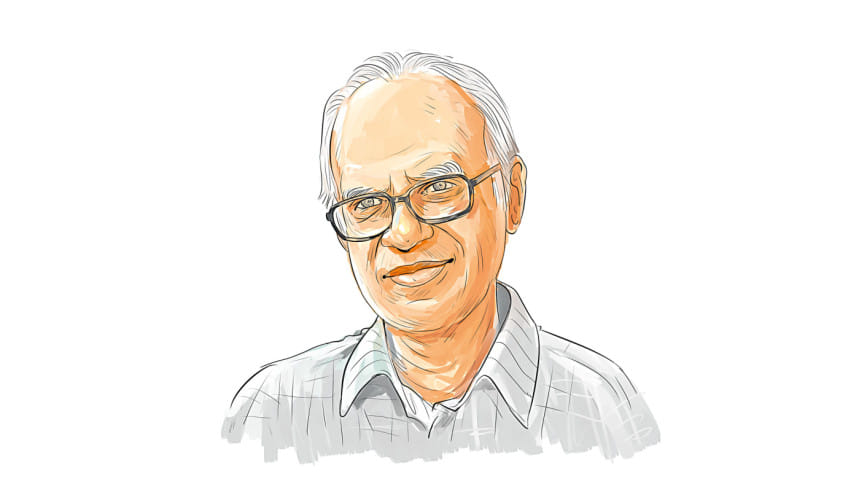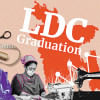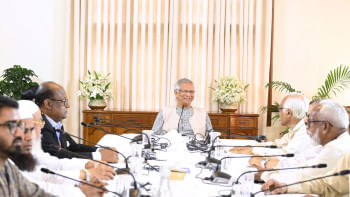‘Universal social protection more urgent than ever’

The urgency to establish a universal social protection system has never been greater for Bangladesh, Planning Adviser Wahiduddin Mahmud said yesterday, as the country moves towards upper-middle-income status.
The country must secure minimum protections for all citizens before its planned graduation from least developed country (LDC) status next year, he said at the National Conference on Social Protection 2025 at the Bangladesh-China Friendship Conference Centre in Dhaka.
The Cabinet Division and General Economics Division, in association with Australian Aid and the UNDP, organised the event.
"As a student of economics, I firmly believe that no country, no matter how poor, can be so destitute that it cannot provide its people with at least the essentials for survival.
"Bangladesh is no longer at that stage. It is set to graduate from the LDC category and gain lower-middle-income status. There is now no excuse not to establish universal social protection for all," he said.
The adviser noted that Bangladesh has long implemented various social safety net programmes, from cash transfers to food aid and stipends.
However, he said these programmes remain fragmented, narrowly targeted, and often poorly managed, with "nearly half of the beneficiaries being either ghost or politically favoured recipients."
"We must recognise that vulnerability is shifting. Today, any secure family can face sudden misfortune from erosion, illness, job loss, or legal disputes. A national, digitised, and regularly updated register of beneficiaries is needed to protect all," said the adviser.
Mahmud identified the "missing middle," what experts describe as families who are just above the poverty line but remain highly vulnerable, as one of the key gaps in the current system. "This means that many families, despite earning a minimum income, cannot meet their minimum consumption needs."
For instance, he said, "Imagine a man standing in a river with water up to his nose. Even the smallest wave will drown him. This is the reality of the missing middle."
Echoing principles of social justice, the adviser said that universal social protection is not a luxury but a moral and constitutional obligation.
He stated that education and healthcare are interconnected and rooted in the values of the 1971 Liberation and last year's July Uprising, which called for an egalitarian society. "While incomes may differ, equal opportunities for all are the cornerstone of a just society."
"Just offering primary education or healthcare is not enough. Alongside those, every individual must also have access to the minimum means of survival," he said.
The planning adviser pointed out that certain regions in the country have long been poverty-prone. "Rangpur, for instance, once suffered from seasonal poverty known as Monga."
He said while the seasonal hunger in Rangpur has eased, poverty persists, and new poverty hotspots have emerged in districts like Netrokona, Sunamganj, Satkhira, and Patuakhali.
He recommended preparing a roadmap for social safety nets to provide the next government with a foundation to build on.
Meanwhile, Monzur Hossain, member of the GED of the Planning Commission, said Bangladesh must focus on building a universal social protection system aligned with the UN 2030 Agenda and its principle of leaving no one behind.
To make this a reality, he urged searching for alternative sources along with government sources.
"Tax revenues alone will not be sufficient. We must explore innovative financing mechanisms such as social bonds, health insurance, and other forms of social insurance, while also raising the tax-to-GDP ratio to expand fiscal space for meaningful investment in social protection," said the GED member.
Hossain described macroeconomic instability, including spiralling inflation and rising unemployment, as one of the most pressing challenges for the country at present.
"A well-designed, properly targeted, and adequately covered social protection system can help address these issues," he added.
Noting that Bangladesh has achieved impressive GDP growth, averaging over 6.5 percent for more than a decade, he said, "But job growth has remained below 2 percent. This is why our growth has often been described as 'jobless growth,' which we now see was unsustainable."
Weaknesses in governance, financing, and institutional capacity have all contributed to this outcome, he also said.
At the event, Disaster Management and Relief Adviser Faruk E Azam, Bir Pratik, also spoke, while Cabinet Secretary Sheikh Abdur Rashid chaired the event.

 For all latest news, follow The Daily Star's Google News channel.
For all latest news, follow The Daily Star's Google News channel. 








Comments